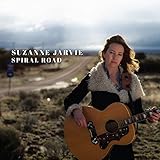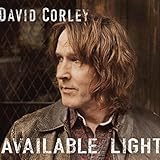
 Today’s singer-songwriters could be tomorrow’s Joni Mitchell or Randy Newman; someone who writes material that is picked up by a jazzer and suddenly making everyone wonder “of course! Why didn’t we appreciate him/her before?”Here are a couple new arrivals.
Today’s singer-songwriters could be tomorrow’s Joni Mitchell or Randy Newman; someone who writes material that is picked up by a jazzer and suddenly making everyone wonder “of course! Why didn’t we appreciate him/her before?”Here are a couple new arrivals.
Suzanne Jarvie was born in colonial Hong Kong and raised in Toronto, Canada-not exactly your typical way of learning an American tune. But, she has a voice and feel like Carlene Carter and Emmylou Harris, sort of a timeless delivery that mixes traditional folk with a variety of settings. She sounds timeless with banjo and guitar settings as well as vocal harmonies on the plaintive “Before and After” and on the calm waltz during “2458” which feels like the last song at the local VFW. Her voice is also matched with some rockish country as on “Enola Gay” and she can also tell a story about relationships as on “Tears of Love” and “Never Gonna Stop”without sounding maudlin or forced. She sounds comfortable in her own shoes, so the setting of acoustic or electric, with or without drums is just a matter of framework for this watercolor of a landscape artist.
Then, from Lafayette, Indiana, David Corley brings forth a voice that is reminiscent of a younger Tom Waits; rough, earthy and filled with subtones. His setting is akin to Neil Young, and the easy beats and strides on acoustic pieces like “Available Light” or gentle rockers with a B3 like “Beyond the Fences” are both laid back and slightly unnerving. His riffs on guitar on “Unspoken Thing” or mood set with piano on “Neptune/Line You’re Leaving Me With” have a Youngish integrity, but he gets a point off for using foul language in his lyrics. A definite no-no if you want someone to dwell on the words after the music’s over.